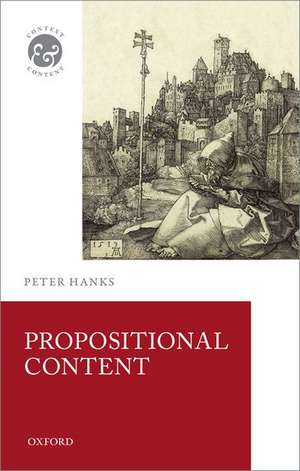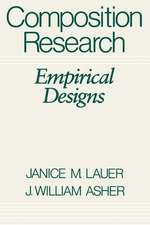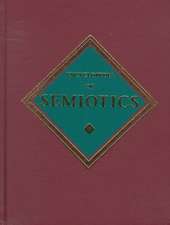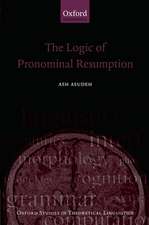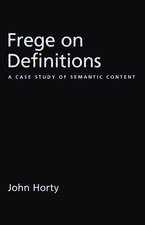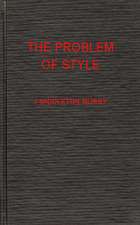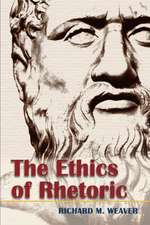Propositional Content: Context & Content
Autor Peter Hanksen Limba Engleză Hardback – 4 iun 2015
| Toate formatele și edițiile | Preț | Express |
|---|---|---|
| Paperback (1) | 177.93 lei 10-16 zile | |
| OUP OXFORD – 15 aug 2019 | 177.93 lei 10-16 zile | |
| Hardback (1) | 423.77 lei 31-37 zile | |
| OUP OXFORD – 4 iun 2015 | 423.77 lei 31-37 zile |
Preț: 423.77 lei
Preț vechi: 543.78 lei
-22% Nou
Puncte Express: 636
Preț estimativ în valută:
81.08€ • 84.67$ • 66.96£
81.08€ • 84.67$ • 66.96£
Carte tipărită la comandă
Livrare economică 04-10 aprilie
Preluare comenzi: 021 569.72.76
Specificații
ISBN-13: 9780199684892
ISBN-10: 0199684898
Pagini: 238
Dimensiuni: 143 x 219 x 20 mm
Greutate: 0.42 kg
Editura: OUP OXFORD
Colecția OUP Oxford
Seria Context & Content
Locul publicării:Oxford, United Kingdom
ISBN-10: 0199684898
Pagini: 238
Dimensiuni: 143 x 219 x 20 mm
Greutate: 0.42 kg
Editura: OUP OXFORD
Colecția OUP Oxford
Seria Context & Content
Locul publicării:Oxford, United Kingdom
Notă biografică
Peter Hanks is an associate professor in the Department of Philosophy at the University of Minnesota. His research is in philosophy of language and the history of analytic philosophy.
Recenzii
Propositional Content is a highly enjoyable and interesting contribution to the literature on the nature and role of propositions in philosophy. Moreover, by providing a detailed, book-length defense of the type-view of propositions, PC reinforces this way of thinking about propositions as a main contender in this area. . . . [it] is to be praised for raising a range of central questions, and for thoughtfully and clearly showing how the view of propositions as types of acts handles a host of issues. It should be a must-read for anyone interested in the nature of propositions.
